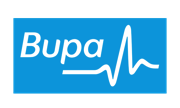
Private Health Insurance For Employees
Employee Private Health Insurance is one of the most sought after company-paid benefits. It has many advantages, for you, the employer and your employees.
But as an employer, before implementing it, its important to fully understand what it offers, how it works and how much it will cost your business. To help you do this we have created the below Complete Guide to Employee Health Insurance.
What Is Employee Health Insurance?
In the UK, Employee Health Insurance is a company-paid benefit you can offer. It allows staff to get medical treatment in the top private facilities, as well as:
- Skip long NHS waiting lists
- Receive private care when they need it most
- Get access to drugs which aren’t on the NHS
- More flexible treatment options
- Flexible visiting hours and appointment times.
As employees avoid NHS waiting lists, it can get them back on their feet sooner. They can schedule appointments at times which suit them, giving them better flexibility.
Why Is It Important?
Providing Employee Health Insurance can help ensure your team stays fit and healthy. It’s also great for building your company’s reputation.
Staff can get the treatment they need, when they need it and get back to work sooner, without disrupting your business too much. After all, your team are those working hard behind the scenes to help make business boom. If they have to take an extended period off work due to poor health, how would your company be affected?

By offering Employee Health Insurance, you show your employees that you care about their wellbeing and value them.
This mindset extends into the recruitment process, too. Listing your benefits in job adverts can leverage you as a great employer with even better perks.
Nick Nelms
Senior Consultant, Employee Benefits
How Does Employee Health Insurance Work?
When it comes to Employee Health Insurance there are many different aspects. Because of this, the specifics will vary depending on your business’s needs and budget.
As an employer, you will usually own and be responsible for the policy. This includes making any changes and staying on top of renewals. In terms of paying for the policy there are two options available.
- Employer Paid
Your company pays for premiums and your staff pay a Benefit-in-Kind tax - Employee Paid
The employee decides to pay for the cover from their pre-tax salary.
If an employee needs to make a claim, they can do this directly with the provider. If you have stated that there is an excess to be paid, the employee will pay this and then be referred for treatment.
EXPERT TIP 🤓
Managing an Employee Health Insurance policy can be time consuming. Many employers opt to have a third party such as Drewberry help to run the benefit to ensure it remains up to date and runs smoothly.
Does It Replace The NHS?
No, Employee Health Insurance is designed to work alongside the NHS. The NHS is always needed for emergencies, chronic conditions, and pregnancy.
But the level at which your employees rely on the NHS will depend on how much cover you pick. We explain this in more detail next.
Type Of Cover
In order to understand Employee Health Insurance, it’s important to understand the different types of cover available. Generally speaking, cover can be split into two types; inpatient and outpatient cover.
Inpatient Cover Only
When setting up Employee Health Insurance, you’ll pick a specific level of cover. If there isn’t any outpatient cover, the GP will refer the patient to the NHS for all tests, consultations, and diagnostics. After this, the employee will be referred to the most suitable private facility.
The following infographic shows the journey to private care without outpatient cover.

With Outpatient Cover
Whereas if the policy does include outpatient cover, access to private care differs.
Rather than an NHS referral, they will be sent straight to a private facility for diagnostics and treatment. This route is typically faster than using the NHS.
It’s important to note that all policies, whether it’s for your employees or a personal plan, will have exclusions. In some situations, you’d still receive full medical care from the NHS.
This infographic shows the route to private care if the policy has outpatient cover.

EXPERT TIP 🤓
Although a GP referral is necessary, this can be done via a virtual GP in most cases. Providers usually offer this service as a free additional benefit with your core policy.
Chronic Vs Acute Conditions
An important aspect to understand when it comes to Employee Health Insurance, is that it won’t cover everything. Generally, medical conditions are split into two categories. These are:
- Chronic conditions
These conditions are with you for life. Doctors can only manage them, rather than cure them. An example might be Diabetes. - Acute conditions
Conditions within this category are those which can be cured with time and medical treatment. For example cataracts needing surgery.
Employee Health Insurance will only cover acute conditions. This means if an employee has a chronic health condition, the ongoing care for it will always be provided by the NHS. This is why having a policy will never fully replace the NHS.
Corporate Client Stories
What Does Employee Health Insurance Cover?
So, we now know how Employee Health Insurance works, but what exactly does it cover?
As we’ve said, it only covers treatment for acute medical conditions. But to what extent will depend on the policy options you choose. Regardless, all policies cover a range of conditions and treatments as standard. You’ll see these on every employee health policy.
For some types of care and treatment, it will cost extra to add these on to the policy. We explain how different levels of cover work next.
Level Of Cover
How much coverage your employees get is down to you, the employer.
As mentioned above, all medical treatment is split into two categories: Inpatient or Outpatient. This applies to both private healthcare and NHS care.
- Inpatient / Day-Patient Care
All health insurers in the UK cover inpatient and day-patient care as standard. This is any treatment which requires a hospital bed, either overnight (inpatient) or for the day (day-patient). This includes surgeries - Outpatient Care
Outpatient is the opposite. This is treatment carried out without needing a hospital bed. Diagnostic tests and scans, for example, are normally carried out as an outpatient.
When it comes to setting up Employee Health Insurance you will get to choose the level of cover you want to offer. Generally, the most basic policies will only offer inpatient treatment and cancer cover, which we discuss in more detail below. This means if employees need diagnostic testing, such as CT / MRI scans and blood tests they will have to go through the NHS.
Why Include Outpatient Treatment?
If you’d like your staff to be able to access private diagnostic tests you will need to add outpatient cover. The more outpatient cover you add to a policy, the more comprehensive it is. Mid range plans, will offer cover up to a certain amount e.g. £1,000. Fully comprehensive plans will offer full outpatient cover.
As you can imagine, the more outpatient cover you offer, the more expensive the policy becomes. Depending on the level of cover you opt for, you and your staff could also benefit from:
- Mental health support
- Complementary therapies
- Physiotherapy.
Some providers will also allow you to add extra cover to your policy, such as Dental and Optical Care, for an additional premium.

We recommend at least some level of outpatient cover on the policy. This can speed up the diagnosis of conditions compared to waiting for the NHS.
Joseph Toft
Senior Consultant, Employee Benefits
Cancer Care
One of the most valuable parts of any Private Health Insurance policy is the Cancer Care. Patients can access drugs, treatments, and therapies that are not available on the NHS due to cost.
All UK health insurers offer policyholders some level of cancer cover as standard. This generally includes:
- Chemotherapy & radiotherapy
- Biological therapies
- Cancer surgery / reconstruction
- Cash towards prosthetics / wigs you need as a result of cancer treatment.
What Doesn’t Health Insurance For Employees Cover?
Like all types of insurance, there are always certain things which are not covered on a policy. The following exclusions apply to everyone, not just your employees:
- Pre-existing medical conditions
- Emergency care
- Issues caused by alcohol / substance abuse
- Pregnancy / fertility treatment
- Cosmetic treatment, which isn’t medically necessary
- HIV / AIDS
- Kidney dialysis
- Self-inflicted injuries, such as those sustained through dangerous sports / hobbies.
What Are The Benefits Of Employee Health Insurance?
Offering Employee Private Health Insurance as a benefit has many advantages, including:
- Promoting a healthy workplace
- Prevention of serious health conditions
- Increased engagement and productivity.
That’s not all, though. While offering protection to your staff benefits them, it also benefits employers. All businesses should consider Employee Health Insurance for the following reasons:
Reduced Absenteeism Caused By Ill Health
Absenteeism in the workplace can significantly disrupt a business and its productivity. If staff take time off work due to poor health, this can affect the day-to-day of business, and even your customers. Although sick days can’t always be avoided, Employee Health Insurance can help reduce the number of absences.
It gives staff access to healthcare in the best private facilities. They can skip long NHS waiting lists and get the treatment they need to return to work as soon as possible. When they don’t have to wait too long for care, your business is less likely to feel the strain of absenteeism.
Shows Employees You Value Them
Your health is your wealth. The employee benefits you offer can go a long way in showing that you care for their general wellbeing. Supportive employers can boost staff morale and retention rates.
Employees will feel more valued at their workplace if their employer has an active role in their wellbeing. And employees who can get the care they need as soon as possible are likely to be in better health, helping to create a happy, productive workforce.
GOOD TO KNOW 🤓
36% of employees want their employer to offer Employee Health Insurance, yet only 19% of employers offer it.
Helps Your Business Remain Competitive
We’ve already explained how an employee benefits package, which includes Health Insurance, can help retain your staff. This also may enable your business to stay ahead of competitors and recruit from a wider talent pool.
The benefits you offer play an important part in the success of your company. Access to private healthcare at a time when the NHS is struggling can help you to remain a top employer.
Shorter Waiting Times And Accessible Hours
Another benefit of Private Medical Insurance for employees is the flexibility. They’ll have access to a range of private facilities and get the medical attention they need at a convenient time. Staff can skip those long NHS waiting lists and recover faster!
They can book GP appointments to better suit their schedules, whether that’s their working hours or childcare responsibilities… Health insurers now offer 24/7 remote GP services, so people can get medical care outside the 9-5.
Access To Treatment & Medication Not Available On The NHS
Going private sometimes offers medications and procedures which aren’t available on the NHS. Cutting-edge treatment is often too expensive for the NHS, while private care has more scope. This is especially true for cancer care as patients may get access to new experimental medicines.
Benefits For Small Businesses
As we’ve highlighted, an employer may feel the strain of several employees off sick at the same time. For small businesses, this is particularly true. While large corporations have the resources to manage if staff are off sick, a small business might not handle it as well.
There may not be enough staff to pick up the slack, especially for businesses with only a few employees. Workloads can quickly build up and service levels may drop.
Employee Health Insurance for small businesses can be set up with as few as three employees. Your staff can get a fast diagnosis and treatment, which helps to reduce long periods of absence.

Another plus? Most UK insurers offer a variety of free extra benefits. Virtual GP services, mental health support, and physiotherapy are a few great examples.
If you’re a small business, these extras may not have been affordable otherwise.
Alex Weir
Independent Health & Protection Expert
How Much Does Employee Health Insurance Cost?
There isn’t a one-size-fits-all approach to Employee Health Insurance. As the policy is tailored to your business, the costs will depend on the policy options you choose. The next four factors are major players for an insurer calculating your premiums.
- Number of employees
Depending on the size of your business and the number of employees, you may get a discount if you’re a large company. This is due to the economies of scale that larger groups bring to the table - How old your employees are
The older we get, the higher our risk of developing illnesses and diseases. Health Insurance for older people is more expensive. However, you’ll find that your premiums are dependent on the average age of your employees - Your location
The cost of Employee Private Medical Insurance is influenced by your location. Private facilities in Central London cost more than those elsewhere in the UK. Your location also affects where your employees can have treatment - Your underwriting and chosen level of cover
How the health policy is underwritten determines what policyholders can claim for. There are several options here, but we’ll cover that soon. The level of cover also impacts the cost. A basic policy without outpatient cover will cost less than a comprehensive plan.
To give you an example of costs, here are some quotes for different levels of cover and group numbers. These are the costs per employee per month.
Standard Cover | Full Cover | 10 Employees | 10 Employees |
|---|---|
£35.99 | £41.05 | 50 Employees | 50 Employees |
£33.07 | £37.73 | 100 Employees | 100 Employees |
£32.46 | £37.03 |
No matter what kind of insurance you’re buying, comparing quotes from all the UK insurers on the market is key. But not all insurers are willing to offer quotes directly to groups of employees.
Many request you go through an intermediary, such as us at Drewberry, to make sure your cover is set up correctly. If you’d like help get in touch with us on 02074425880. You can also email us if you prefer at help@drewberry.co.uk.
EXPERT TIP 🤓
There is no fixed cost for Employee Health Insurance. What you pay will depend on the policy options you chose. Because of this there are plenty of things you can do to reduce the cost of premiums.
How Is Employee Health Insurance Taxed?
As Employee Health Insurance is classed as business expense, so it’s not liable for corporation tax. This is good news for you as an employer. However it is important to understand that it is classed as a P11D / taxable benefit in kind.
This means employees are liable to pay income tax on the value of the benefit and you as an employer will need to declare it to HMRC. To do this you will need to fill out and submit a P11D form. After this, HMRC will tax the premiums through a reduction in a covered employees personal allowance.
Corporate Medical Insurance Product Reviews
What To Consider When Setting Up Employee Health Insurance
When setting up Employee Health Insurance for your staff, there are many policy factors to consider. As mentioned above, one key factor you will have to think about is the level of outpatient cover you want. However on top of this you will also need to consider:
Number Of Employees Covered
To start, most insurers will ask for a minimum of at least 3 employees to qualify for any form of group cover. This allows small businesses to provide Health Insurance to their employees. What’s more, the number of staff you want to buy cover for will impact the underwriting.
The Excess
Most policies have an excess. Just like Car Insurance, the excess is the amount the employee will need to pay upfront for treatment.
Excesses can range from £0—meaning the employee has to pay nothing towards their treatment—up to £1,000 or more. The higher the excess, the cheaper the policy.
Keeping affordability in mind is key here. You don’t want to price any of your workers out of the policy, so the excess amount needs to be affordable for all. Most employers opt for a £100 excess.
Underwriting
There are three options for the underwriting of your Employee Health Insurance.
- Full Medical Underwriting (FMU)
FMU is used for Employee Health Insurance schemes where only a few workers are covered. Pre-existing conditions will be excluded from the outset, but you’ll know what isn’t covered straight away - Moratorium Underwriting
The insurer assesses an employee’s medical records from the last 5 years and checks the condition they’re claiming for. With Moratorium, it’s possible for an exclusion to be reassessed if they haven’t had any treatment, medication, or advice for it over a 2-year period - Medical History Disregarded (MHD)
Here the medical history will be disregarded, so policyholders are covered for everything. This type of underwriting can give full cover to employees who might not be able to get it anywhere else. But it’s the most expensive and only available to larger groups.
EXPERT TIP 🤓
Medical History Disregarded is a type which provides the most comprehensive cover. But it’s usually only available to businesses that want to provide cover for over 20 members.
6 Week NHS Wait
One way to reduce the cost of your Employee Health Insurance is to add the 6 week NHS wait option.
This means that if the treatment a worker needs is available on the NHS within 6 weeks, they’ll get care with the NHS. If the waiting list is longer than 6 weeks, the employee will get private care immediately. This is worth considering since NHS waiting lists are more often than not, longer than 6 weeks.
Optional Extras
Most insurers will have various optional extras to add to your cover. Popular add-ons include Dental and Optical cover, Travel cover, and Psychiatric cover. These will come at a higher price, though.
Psychiatric Cover
Mental health cover isn’t always included as standard with Health Insurance. Psychiatric care offers a number of mental health treatments or therapy sessions per year.
This might be a fixed amount of therapy sessions, inpatient days, or consultations with a psychologist or psychiatrist. For example, Bupa offers mental health and psychiatric services in full for up to 45 days per year.
Routine Dental & Optical Cover
Employee Health Insurance usually covers emergency and surgical procedures to the eyes and mouth. This includes the loss of a tooth, removal of an affected wisdom tooth, or a cataract operation, for example.
What isn’t covered is routine optical and dental care. This is dental/ optical check ups and the cost of treatment.
With this, employees will be able to claim for a number of dental/optical checkups a year. They can also get part of the cost of an eye test covered with some insurers.
Cover For Family Members
Some employers allow employees to extend health coverage to immediate family members. The premiums of which are either paid for by the company or the employee.
By extending cover to their families, the benefit becomes even more valuable. It can help them get the treatment they need fast and limit any financial burden associated with private care.

As we have access to all the UK insurers at Drewberry, it puts us in a position to secure the best deal. In fact, going through an adviser can sometimes mean you get exclusive offers.
If you want to discuss putting a policy in place don’t hesitate to give us a call on 02074425880 or email help@drewberry.co.uk.
Joseph Toft
Senior Consultant, Employee Benefits
Common Employee Health Insurance Questions
How do employees make a claim?
Oftentimes when an employee needs to make a claim on their health policy, they’ll need a GP referral. Many health insurers request a GP referral before someone accesses private treatment.
In most cases, if someone is unwell, their first port of call is their GP. They may suggest specialist treatment, which can then lead to a referral.
We’ve already highlighted in this guide how the route to private treatment works. But it’s important to reiterate that a GP referral is a must. Nowadays, you can get this via the digital GP services health insurers offer on policies.
If the insurer covers their health issue, they can get treatment at a private facility. The location of which will depend on the hospital network listed on the policy. The insurer will then cover the medical bills.
The process for making a successful claim depends on the health insurer you take out a policy with. Employees can find this information within policy documents.
What extra benefits does Employee Health Insurance offer?
Most Employee Private Medical Insurance policies come with a range of extras on top of the core plan. These are often free and can even extend to family members.
Your employees may have access to:
- Free / discounted gym memberships
- An annual ‘health MOT’ / physical health check
- Telephone or online support services, such as counselling
- Private GPs via telephone or video for advice, referrals and prescriptions
- Direct referral to physiotherapists without having to see a GP.
Here are some examples of what different providers offer:
AXA offers unlimited access to GP appointments and up to 40% off gym memberships. Bupa has a menopause hotline, which supports women. It also offers family mental health support, so parents can get care for their children.
At Drewberry, we always consider the extra benefits insurers offer. We assess your needs and help to find the best Employee Health Insurance for your business.
Does Corporate Health Insurance Cover Pre-Existing Medical Conditions?
Most company schemes will not cover pre-existing medical conditions as they are either underwritten on a moratorium or full medical underwriting basis. In both cases the current state of health of the employee is taken into account when approving a claim.
There is an option called Medical History Disregarded where pre-existing conditions will be covered. This tends to be reserved for larger schemes and is more expensive per employee.
Compare Employee Health Insurance Quotes & Get Expert Advice
With so many policy options to choose from, setting up a policy yourself can be long-winded. We know this to be true from our experience with our clients. To help ensure you pick the right policy terms for your business, it’s always best to rope in the experts.
Our advisers know the UK’s health insurers inside out, putting us in a great position to find you the best policy. We can do all the heavy lifting on your behalf, so you can put your feet up.
If you’d like extra support setting up your employee benefits, please don’t hesitate to call us on 02074425880 or email help@drewberry.co.uk.
Why Speak to Us?
We started Drewberry™ because we were tired of being treated like a number.
We all deserve a first class service when it comes to things as important as protecting our health and our finances. Below are just a few reasons why it makes sense to talk to us.
- We are award winning 🏆 independent insurance advisers who work with all the leading UK insurers
- You’ll speak to a dedicated expert from start to finish
- We are very proud of the 3746 and growing independent client reviews rating us at 4.92 / 5
- We are authorised and regulated by the Financial Conduct Authority. You can find us on the financial services register here 🧐
- Claims support when you need it most.
Contact Us
85 Queen Victoria Street
London
EC4V 4AB
125-135 Preston Road
Brighton
BN1 6AF
Cookies
Drewberry™ uses cookies to offer you the best experience online. By continuing to use our website you agree to the use of cookies including for ad personalization.
If you would like to know more about cookies and how to manage them please view our privacy & cookie policy.















